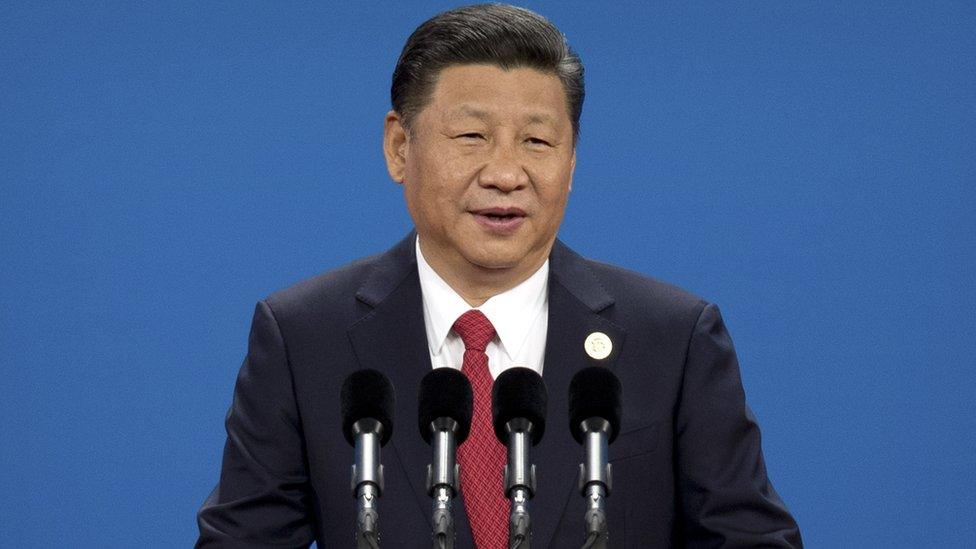The country stuck between the US and China
- Published
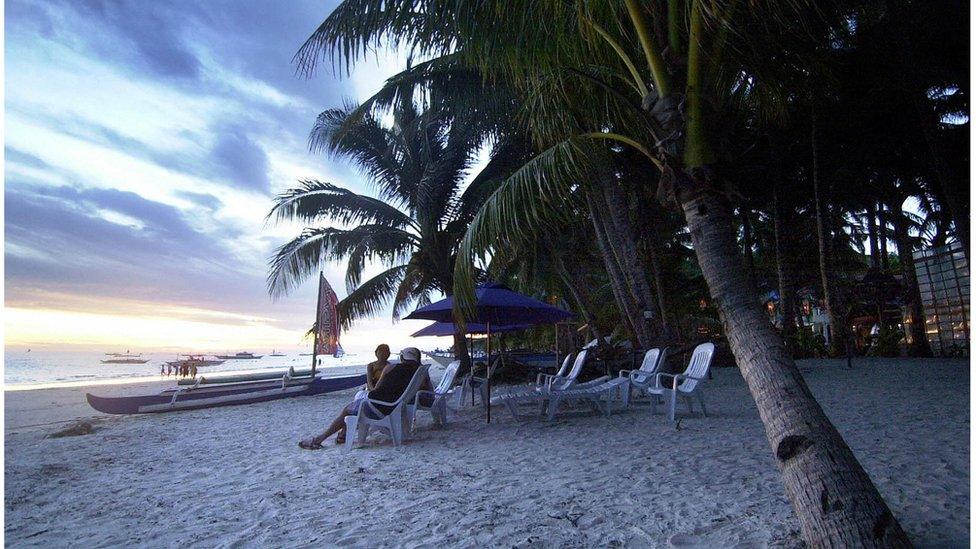
Two years ago the Philippines was entrenched in the bitterest of disputes with regional giant China, bringing a David v Goliath-style case against it over the South China Sea islands.
Fast forward to present day: now, the Philippines wants Chinese cash.
What happened? Well in part there is a genuine dilemma here for the Philippines.
It's a small island country, stuck on the sidelines of the Asia-Pacific, surrounded by much larger, powerful nations.
The Philippines' main source of income and military assistance has been from its former colonial masters, the United States.
It also has a large population to find jobs for, and urgent infrastructure projects to fund, none of which it can do on its own.
New friends
So the Philippines is left playing a hedging game between the US and China - the world's old superpower and the new.
Despite competing claims in the South China Sea, Manila is now softening its stance in a bid to woo investment from Beijing.
"At this point it is very important for us to build confidence in each other," Finance Secretary Carlos Dominguez told me in an interview in Singapore.
"We are not abandoning any claims [in the SCS] but the President thinks that this is the time to be more friendly rather than contentious."
But it wasn't always such a cordial relationship.
As recently as 2014, Chinese investment into the Philippines was worth a paltry US$42m, a fraction of what Beijing has invested in the rest of the South East Asian region - in part due to the suspicion many in Manila had over Beijing's motivations, external.
The new-found friendship that has blossomed under President Rodrigo Duterte is no doubt helped in part by the massive chequebook China has to finance the loans he needs to implement his "build, build, build" policy that is expected to cost US$180bn over the next six years.
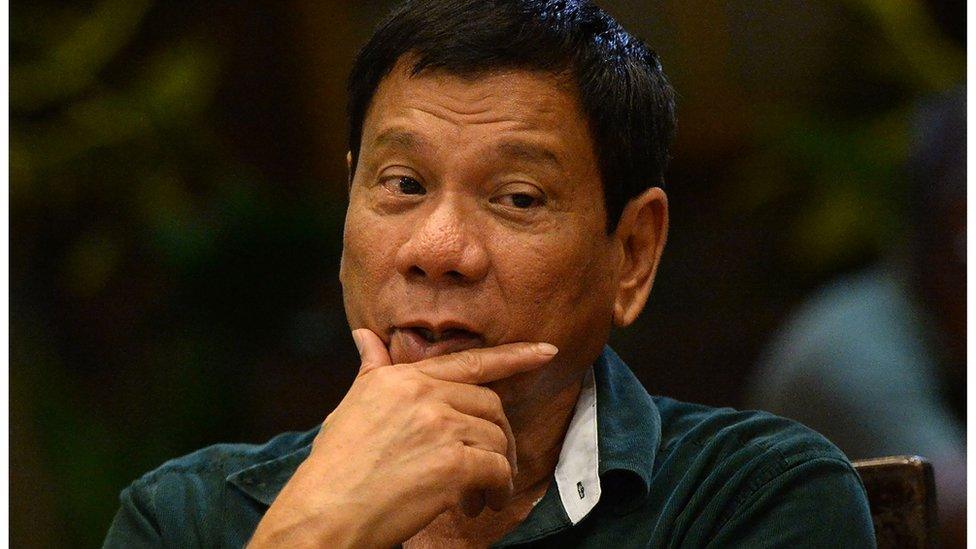
Philippines president Rodrigo Duterte
As part of this new strategy, Secretary Dominguez also told me that the Philippines is launching a US$200m bond issue to China for the first time in October, to try and tap investment in the country.
But investment from China never comes without strings attached, I pointed out to him - and the list of Asian countries that have taken loans from Beijing only to find themselves unable to pay these debts back is growing fast. Is the Philippines next?
Secretary Dominguez was quick to dismiss such concerns.
"We think Chinese loans can be beneficial to us, particularly if we negotiate them in a clever manner," he told me. "Nobody is forcing it down our throats."
It's an argument I've heard from many Asian officials who privately have told me that the money from Beijing is too good to ignore, and are convinced that they will be able to exploit the relationship to their own advantage.
But it's also a dangerous path to tread.
"There are a lot of cautionary tales around the region of countries that come out on the losing end," Maria Ressa, chief executive of the Rappler website and long-time Philippines observer told me.
"The Duterte administration acknowledges that we are weaker, but that we also have something to offer China. They're trying something new - but are they really as clever as they say they are? We will have to wait and see."
Power shifts
For now though, it does look like China has the upper hand.
Beijing's One Belt One Road initiative, a massive infrastructure project across most of the world has also convinced many Asian partners that China's interest in them is for the long term.
Meanwhile, increasingly Asian countries feel that their traditional ally, the US, has become unreliable since Mr Trump was elected. Even if they won't say it publicly, the shift in economic and business strategy is revealing.
"Our business with the US will continue, but not be as big a part of the economy as the past," Secretary Dominguez told me. "We used to have only American cars in the sixties….now we are seeing Chinese motorcycles. We have to move with the times."
China's cash may come with its own set of unique complications but the view from here is at least it's paying attention to what Asia needs.
- Published6 April 2017
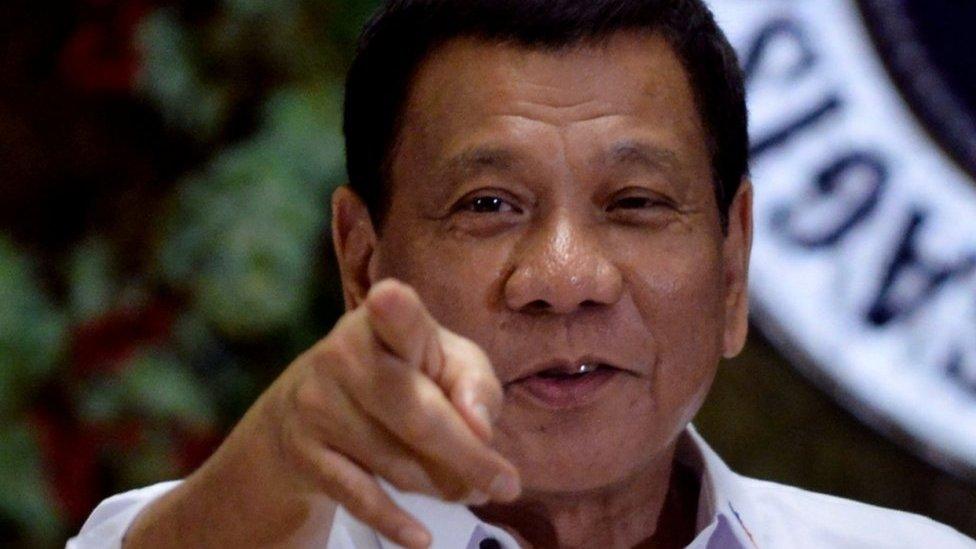
- Published3 June 2017
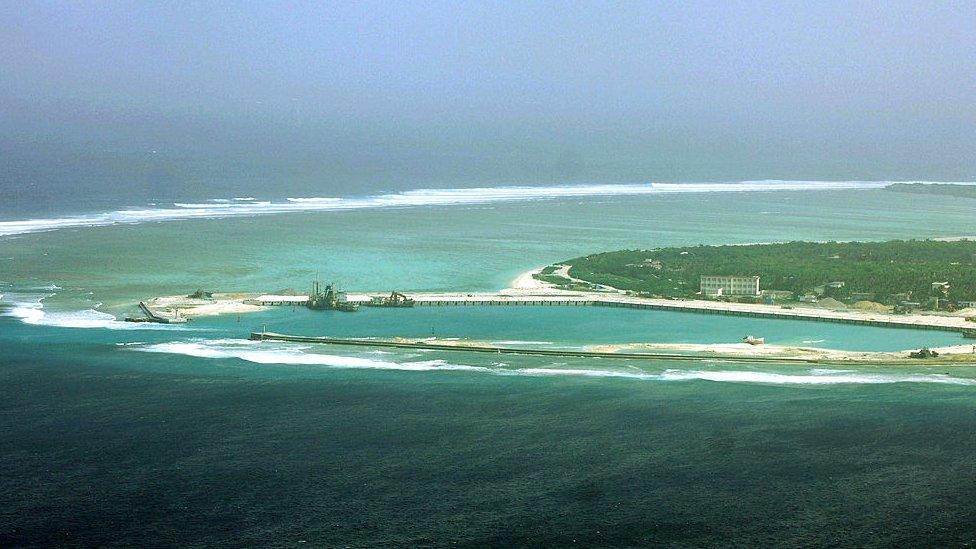
- Published14 May 2017
